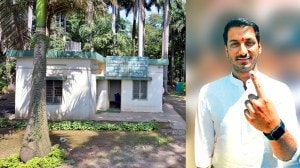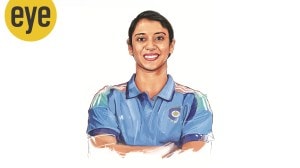China backs second term for Hong Kong chief in blow to democracy hopes
HONG KONG, OCT 27: China has signalled its support for Hong Kong's Chief Executive TungChee-hwa serving a second term of office that would...

HONG KONG, OCT 27: China has signalled its support for Hong Kong’s Chief Executive TungChee-hwa serving a second term of office that would keep him in charge of the former British colony until 2007.
In a development seen as a blow to hopes for early progress towards democracy in the territory, Chinese Prime Minister Zhu Rongji said after talks with Tung in Beijing that he would fully support the current Hong Kong leader seeking a second five year term in 2002.
Zhu’s comments, reported by Hong Kong public radio, followed similar remarks on Thursday by vice premier Qian Qichen that were interpreted here as making Tung’s reappointment a fait accompli, despite his slumping popularity.
Under the Basic Law, which enshrines how Hong Kong is supposed to be governed following the handover from British rule in 1997, a decision has to be made by 2007 on whether the territory moves towards western-style democracy.
Political analysts said Tung’s ultra-cautious nature and his close ties to Beijing meant a decision to reappoint him would reduce the chances of this happening."
My prediction is that the democratic reform in 2007 will be postponed," said Sonny Lo, a director at research group Hong Kong Transition Project."
Judging from Tung’s conservatism, a full democratization is unlikely then."
Lo said he expected Beijing to allow for more members of Hong Kong’s Legislative Council (LegCo) to be directly elected while increasing the number of seats in the assembly to ensure pro-Beijing groups continue to hold sway.
LegCo has only limited powers of control over the executive council headed by Tung, who this week rejected proposals to make its members more accountable to the legislature.
Lau Siu-kai, associate director at the Hong Kong Institute of Asia-Pacific Studies, agreed with Lo. "I don’t expect a full democratization as called for in the Basic Law," he said."
I think the Chinese leaders should stay neutral. It is inappropriate to publicly support Tung’s bid for a second term in office in 2002."
Hong Kong newspapers were convinced that Tung’s reappointment is now inevitable."
Five more years," trumpeted a banner headline in the Hong Kong iMail.
The South China Morning Post said that Beijing’s open declaration of support for Tung "undermines the supposedly democratic process by which Hong Kong’s leader is chosen."
The decision on the next chief executive is expected to be made by an 800-member election committee modelled on the one which selected Tung to take over from Britain’s last governor, Chris Patten, in 1997.
That committee was ostensibly made up of independently-appointed nominees from different community groups in Hong Kong but in practice was dominated by Beijing loyalists.
The Post said Beijing’s backing for Tung meant any hope of a contest over which the opinion of Hong Kong’s six million people would have any influence had been eliminated."
Any other contenders gearing up to apply for the post when it becomes vacant again in 2002 will certainly be deterred from entering the race now," the paper said in an editorial.
Zhu however rejected suggestions that Beijing had compromised the autonomy it promised Hong Kong when the territory returned to Chinese rule in 1997."
Each one can express his own idea," he said after meeting Tung, stressing that the decision was for the election committee not the Chinese leadership.
Tung has so far refused to confirm whether he will seek a second term. But the Post said the blessing from Beijing madeit inevitable he would carry on."
If the mainland leadership asks him to soldier on for an additional five years, that is undoubtedly what he will do."
Martin Lee, chairman of the Democratic Party, said the signals from Beijing did "not augur well for the high degree of autonomy that we are supposed to enjoy" adding that the comments were in effect "telling the Hong Kong people and the whole world that the so-called election of our chief executive is fixed in Beijing."
Tung’s popularity in Hong Kong has slumped over the last year as the public has grown disenchanted with rising unemployment and poverty levels and falling property prices.
A row over charges that Tung tried to gag an academic who carried out opinion polls charting his declining popularity has also helped tarnish the chief executive’s image.



- 01
- 02
- 03
- 04
- 05




























